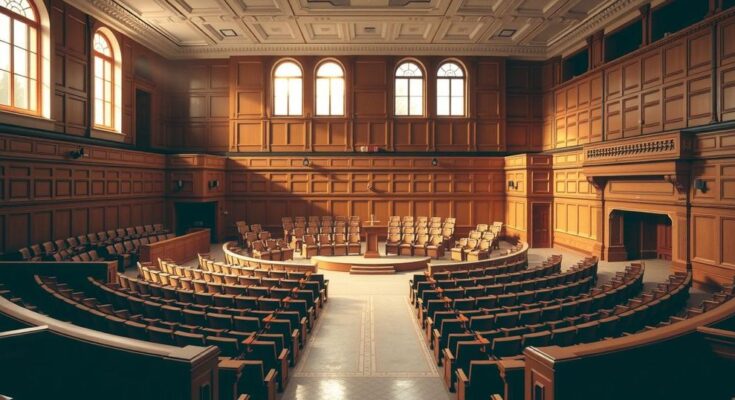President Marcelo Rebelo de Sousa has called for an early parliamentary election in Portugal on May 18, following the disbandment of the government after a lost confidence vote. Prime Minister Luis Montenegro is facing scrutiny over potential ethical concerns but maintains party support. The Socialists appear to lead in opinion polls, and concerns about political instability linger as the election approaches amidst a challenging political context.
The President of Portugal, Marcelo Rebelo de Sousa, has announced an early parliamentary election set for May 18, following the collapse of the centre-right minority government. This election marks Portugal’s third parliamentary race in just over three years and comes on the heels of a parliamentary confidence vote that the government lost, necessitating its disbandment after consultations with key political entities.
The current Prime Minister, Luis Montenegro, initiated the confidence motion amidst opposition threats to investigate his family’s consultancy business, which has allegedly benefited from government contracts. Montenegro asserts that he has not engaged in any unethical behaviors, although allegations are currently under initial review by prosecutors.
The Social Democratic Party, led by Montenegro, continues to support him for the upcoming election and attributes the political turmoil to the opposition’s actions. Political analysts, however, contend that Montenegro’s leadership decisions are primarily responsible for the impending election, with public opinion polls suggesting a loss of voter confidence in his government.
Recent polls indicate that the opposition Socialist Party is gaining slight traction, with both major parties polling around 30%. Meanwhile, the far-right party, Chega, is facing a relative decline from their previous support levels. The stability of the government remains a core concern as another election could exacerbate the political instability already present in the country.
Despite recent political upheavals, Portugal’s economic performance has remained resilient, with above-average growth within the EU and budget surpluses. Economists do not foresee immediate negative impacts on the economy resulting from the upcoming election. However, growing frustration among voters regarding repeated elections may lead to increased abstention in the upcoming voting process, as evidenced by a record turnout in previous elections.
In conclusion, Portugal’s impending early parliamentary election reflects significant political turbulence, with the current government facing challenges to its legitimacy and public trust. The situation is compounded by the potential for increased voter abstention and persistent instability, despite the country’s commendable economic performance. President Rebelo de Sousa’s decision to disband parliament has set the stage for a critical election that could reshape the political landscape once again.
Original Source: www.usnews.com




